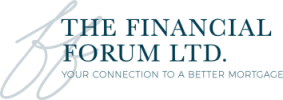How the Bank of Canada’s Interest Rates Hike might affect you and your finances.
Currently, the Bank of Canada has maintained the interest rates at a record low. It is unclear when the BOC would increase the rates, but you will definitely see a rate hike in the future.
When the BOC increases the rates, it might affect you in more ways than you have thought.
Take a look at how the interest rates have fluctuated in the past years:
- Interest rates were 4.25% in January 2008
- Thanks to the financial setback, the rates dropped to 1% in January 2009.
- Up until January 2018, interest rates have remained steady at 1%.
- And that means that the rates have climbed a quarter of a percentage point after a decade.
- BOC Interest Rate Today 0.25%
Bank of Canada Shifts Expectations Upward
The Bank of Canada held its 4th meeting of the year.
- the Target Overnight Rate will remain at 0.25%. (Unchanged from the prior meeting)
- CPI inflation has reached the top of the 1-3% inflation-control range and likely to remain at 3% for the summer
- The Bank of Canada expects a rate hike as early as the second half of 2022
While CPI inflation has reached the top of the Bank of Canada’s inflation-control range, it is believed that the inflation will be transitory and that “extraordinary monetary policy support” is still necessary for Canada’s economic recovery.
Inquire About these Low Rates
You can contact The Financial Forum at 905-265-0246, or email us at mortgages@thefinancialforum.ca. You can also find a contact form, as well as a map to our office, on our contact page.
How do the BoC’s rates hike affect you?
The BoC acts as the main lending institution to consumer-facing banks. Because of this, any changes in its lending rates are reflected in the rates banks levy on the amounts they lend. As a result, in anticipation of the BoC’s announcement, the six major banks of Canada raised their mortgage rates. Accordingly, in the coming weeks, consumers are likely to notice a rise in the interest rates they’ll pay on mortgages, credit cards, student loans, and car loans.
Interest rates on credit cards
Most credit cards carry a variable interest rate which is typically many percentage points above the prime rate. Given that this prime rate is fixed according to the rates levied by the BoC, you may find that you now pay higher rates on your credit card’s unpaid balance.
Of course, if you have a credit card with a fixed interest rate, the BoC rate hike will not affect you. However, if you’re paying higher interest rates on the mortgage and any other loans you have, covering your credit card bill payments may present a bigger challenge.
Interest rates on mortgages
Interest rates on mortgages have already been hiked by the major banks. In response to the hike by the BoC, they could go up even further. Let’s try an example. Say you’re buying a house for the price of $500,000. The amortization period is 25 years and the required down payment is 10%. Before the BoC hike, the interest rate on mortgages was 4.99%. Accordingly, you were paying $2,702 repayments each month. But now that the banks have raised the interest rates, you’ll pay an amount of $2,745 per month, a hike of $480 every year.
Interest rates on car loans
The hike in interest rates could similarly affect the payments you make towards a car or vehicle loan. At present, the CIBC offers loans for buying a car at a 3.2% interest rate. Perhaps you’ve bought a car worth $10,000 and you intend to pay off the loan over a period of 4 years. Accordingly, you’ll pay $222 each month where the total interest on the loan is $667. With the hike in interest rates to 3.5%, you’ll pay only $2 added interest per month. However, the total interest on the loan now stands at $731.
Interest rates on student loans
Students may also find that they’re paying added interest on their loans. Take, for instance, the annual tuition at Ryerson University in Toronto. The undergraduate course in the arts stream is $7,415. As a result, you’ll pay a total of $29,600 for the complete 4-year course excluding the cost of rent, transport, and books.
Typically, a fixed-rate line of credit for students at TD is a prime of 3.2% plus 1.5% which is a total of 4.7%. Accordingly, you’ll pay a total interest amount of $1,410 over the 4-year loan period. However, if the interest rate is variable and the interest rate rises from 4.7% to 5.2%, you could end up paying a total interest amount of $1,560 on the loan.





